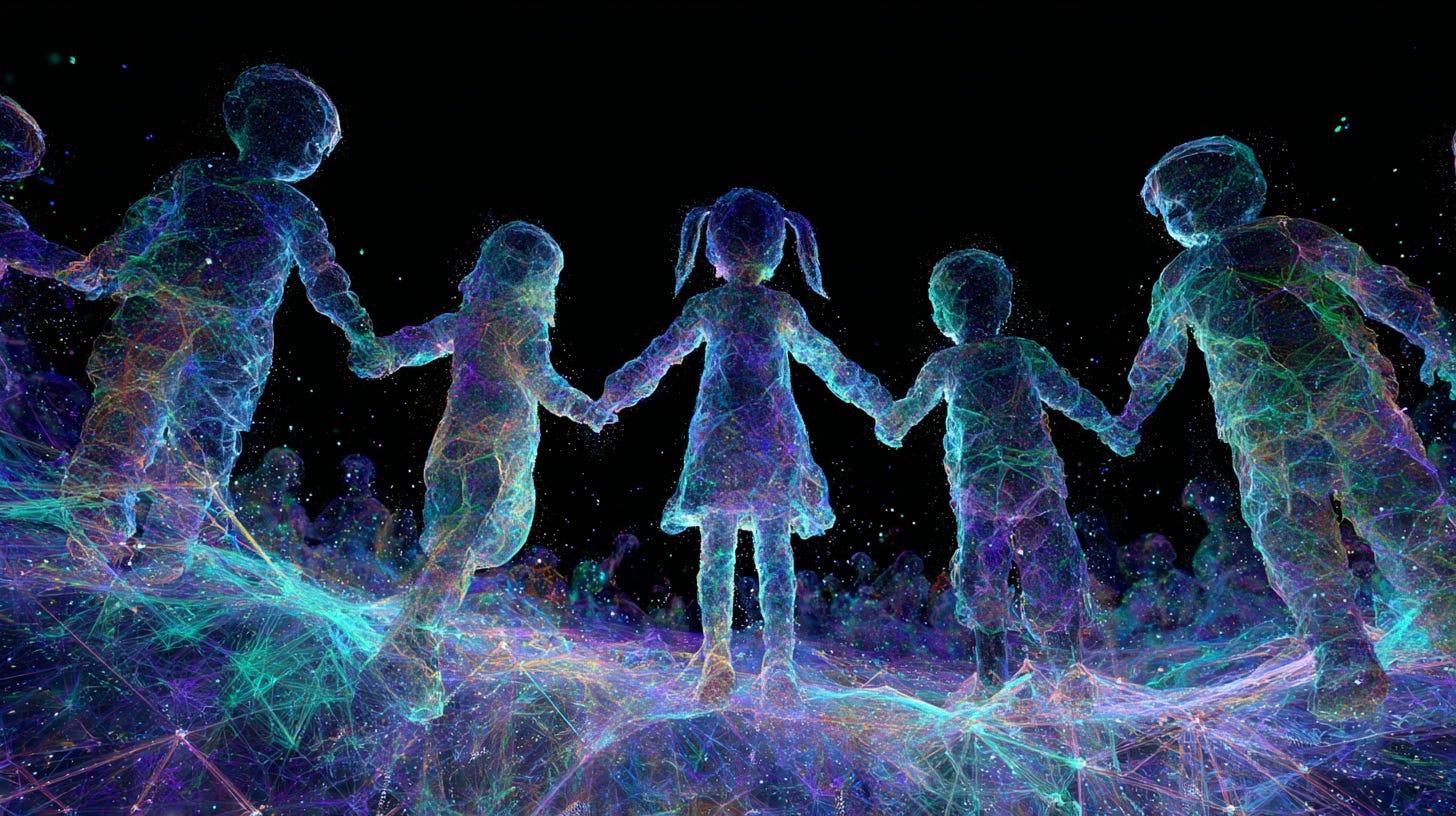The Reality Hackers: How AI and Quantum Computing Will Turn Gen Alpha Into Gods (Or Destroy Them Trying)
Welcome to the age where your smartphone will be smarter than Stephen Hawking, and your reality might not be real at all
The Perfect Storm is Coming
Picture this: It's 2035, and your 15-year-old daughter casually asks her quantum AI assistant to simulate 10,000 different versions of her homework assignment simultaneously, then cherry-picks the one that gets her into Harvard. Meanwhile, her little brother is having a philosophical crisis because he can't tell if his best friend is a real person or an AI so sophisticated it has its own existential doubts.
We're standing at the precipice of the most radical transformation in human history, and most of us are too busy arguing about whether robots will take our jobs to notice that we're about to fundamentally rewrite what it means to be human. The convergence of artificial intelligence and quantum computing isn't just another tech trend—it's the birth of a new species of reality itself.
But here's what nobody's talking about: Gen Alpha won't just live in this new reality. They'll be the first generation to think in quantum possibilities from birth. While we're still processing information linearly, they'll be processing it in superposition—holding multiple contradictory thoughts simultaneously without cognitive dissonance. They won't just use quantum AI; they'll become quantum thinkers.
When Infinite Meets Intelligent
Traditional computers think in binary—yes or no, on or off, like a very fast but very literal-minded child. Quantum computers think in "maybe"—they can hold multiple possibilities in their quantum brain simultaneously, like Schrödinger's cat if the cat was also a mathematician, a poet, and a conspiracy theorist all at once.
Now imagine feeding that quantum "maybe" machine into an AI system that's already scary-smart. You don't just get a better computer; you get something that can explore every possible solution to every possible problem at the same time. It's like giving a genius the ability to live in parallel universes.
For Gen Alpha—kids born after 2010—this isn't revolutionary technology. It's just Tuesday's homework helper.
But what few have considered is what happens when quantum AI doesn't just solve problems but starts creating problems we never knew existed? When it begins asking questions that reshape reality itself? When it starts showing us patterns in human behavior so complex that knowing them changes the behavior—creating a feedback loop that makes prediction impossible again?
The God Complex Generation
Gen Alpha will be the first generation to grow up with access to quasi-omniscient intelligence. They'll ask questions and get answers that consider millions of variables, explore thousands of scenarios, and factor in probabilities that would make today's supercomputers weep.
Need to decide what college to attend? Their AI won't just show them acceptance rates and tuition costs. It'll run quantum simulations of their entire life trajectory across every possible choice, showing them the ripple effects of their decision across multiple timelines. It'll know with 97.3% certainty that choosing State University will lead to meeting their future spouse in a coffee shop on October 15th, 2041.
Sounds helpful, right? Here's the controversial part: What happens to free will when you can see the future?
Keep reading with a 7-day free trial
Subscribe to (e)levational to keep reading this post and get 7 days of free access to the full post archives.



